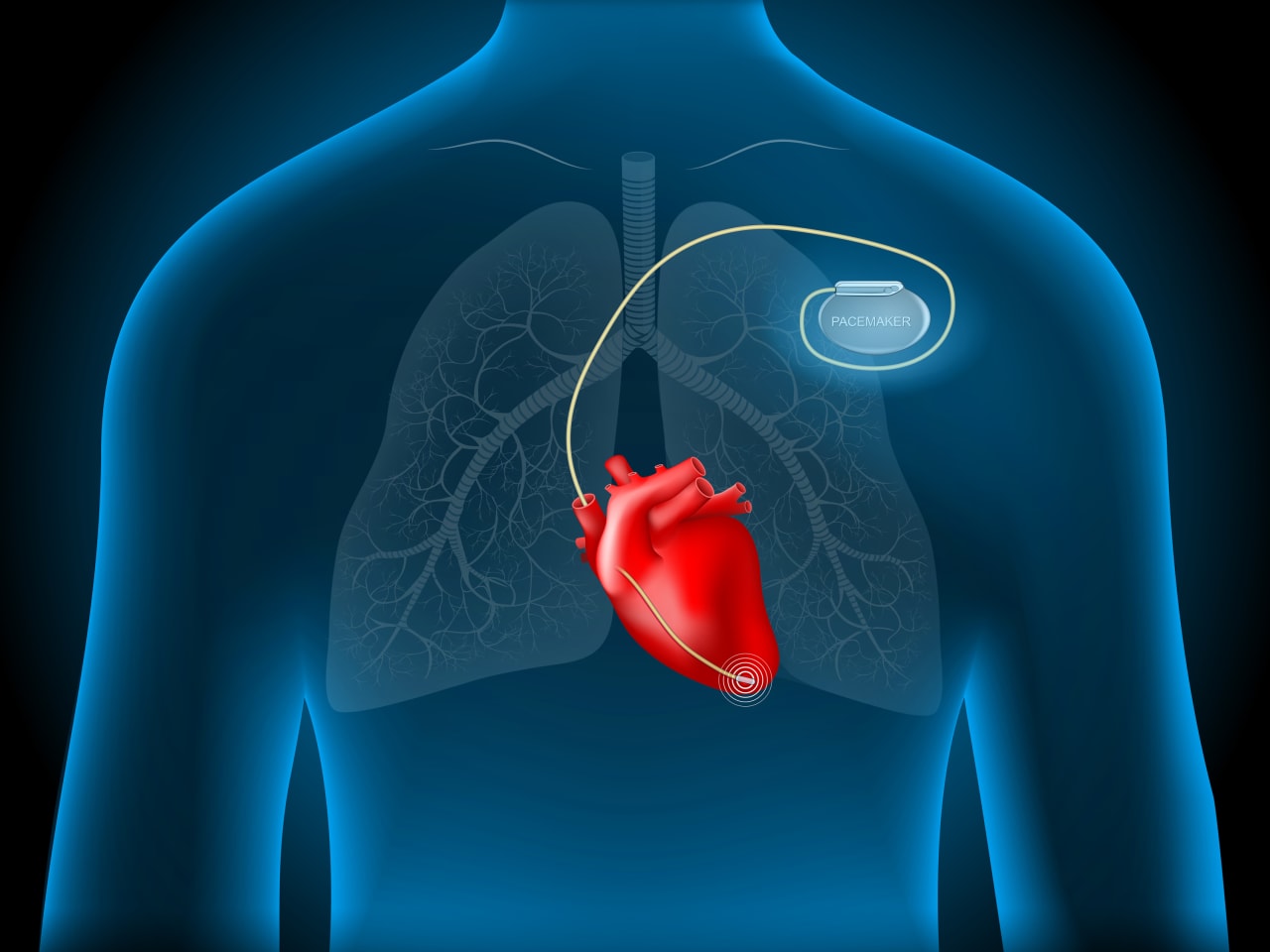Pacemaker and ICD Insertion
Pacemaker and ICD Insertion
Abnormal heart rhythms, known as arrhythmias, can vary from minor disturbances to serious, life-threatening conditions. When medication alone is insufficient, advanced cardiac devices such as pacemakers and implantable defibrillators are essential in regulating and maintaining a stable heartbeat.
At 4R Consultancy, we assist patients in accessing leading heart rhythm specialists and advanced cardiac centers in India to ensure precise diagnosis and safe implantation of these life-saving devices.
What Are Pacemakers and ICDs?
- A pacemaker is a small electronic device implanted under the skin near the collarbone. It sends electrical impulses to stimulate the heart when it beats too slowly (bradycardia) or irregularly.
- An Implantable Cardioverter Defibrillator (ICD) is used for patients at high risk of sudden cardiac arrest. It continuously monitors the heart rhythm and delivers a corrective electric shock if it detects a dangerously fast or irregular rhythm.
In patients with both arrhythmia and heart failure, a combination device called CRT (Cardiac Resynchronization Therapy) may be recommended. This includes:
- CRT-P: Cardiac Resynchronization Therapy with Pacemaker
- CRT-D: Cardiac Resynchronization Therapy with Defibrillator
Who Needs a Pacemaker or ICD?
Patients may require device implantation if they have:
- Bradycardia (slow heart rate)
- Advanced heart block
- Frequent fainting due to heart rhythm disturbances
- History of sudden cardiac arrest
- Life-threatening ventricular arrhythmias
- Reduced ejection fraction and heart failure
- Inherited arrhythmia syndromes (e.g., Long QT, Brugada)
Types of Devices
- Single-Chamber Pacemaker: Stimulates one heart chamber, usually the right ventricle.
- Dual-Chamber Pacemaker: Coordinates activity between the atrium and ventricle.
- Biventricular Pacemaker (CRT): Improves pumping efficiency in heart failure patients.
- Standard ICD: Detects and corrects dangerous fast heart rhythms.
- Subcutaneous ICD (S-ICD): A newer option implanted under the skin, avoiding direct leads in the heart.
Pre-Implantation Evaluation
Before implantation, the cardiology team conducts thorough investigations including:
- Electrocardiogram (ECG)
- 24- or 48-hour Holter monitoring
- Echocardiography
- Electrophysiology (EP) study (in select cases)
- Cardiac MRI or CT (if needed)
- Blood tests and chest imaging
These tests help determine the type of device and ensure patient safety during the procedure.
The Procedure
- Performed under local anesthesia with sedation
- A small incision is made below the collarbone
- Leads are guided through a vein into the heart
- The device is implanted under the skin and connected to the leads
Typical duration is 1 to 2 hours. Hospital stay is usually 1 to 2 days. Patients are advised to avoid heavy lifting for 4 to 6 weeks. Most return to normal daily activities within two weeks.
Risks and Post-Implantation Care
While generally low-risk, possible complications include:
- Infection at the implantation site
- Bleeding or hematoma formation
- Pneumothorax (lung-related complication)
- Lead displacement or malfunction
- Rare device-related issues
Regular follow-ups are essential. Device checks are usually scheduled every 3 to 12 months, and remote monitoring options are available in most Indian hospitals.
Advantages of Getting Device Therapy in India
- Experienced electrophysiologists trained internationally
- Latest generation devices from top global manufacturers
- Advanced EP labs and hybrid operating rooms
- Fast access to treatment and no long waiting lists
- Multilingual care teams and comprehensive follow-up programs
- Cost-effective care — 60–80% lower than many Western countries
Note: Treatment costs depend on the type of device, patient's condition, and hospital. We do not provide exact figures online, as costs vary significantly based on individual needs.
How 4R Consultancy Supports You
Our end-to-end services include:
- Reviewing your ECG, Holter reports, and other medical documents
- Connecting you with leading cardiac rhythm specialists
- Advising on appropriate device type based on your diagnosis
- Recommending the best hospitals for treatment
- Handling visa applications and travel arrangements
- Coordination of your treatment planning and follow-up care
Need a Device Implantation Opinion?
If you're considering a pacemaker or ICD, early diagnosis and expert guidance can make a crucial difference. Please send us your medical reports via Viber or WhatsApp, or fill out the contact form. Our team will connect you with the right doctors and help you access world-class care.


